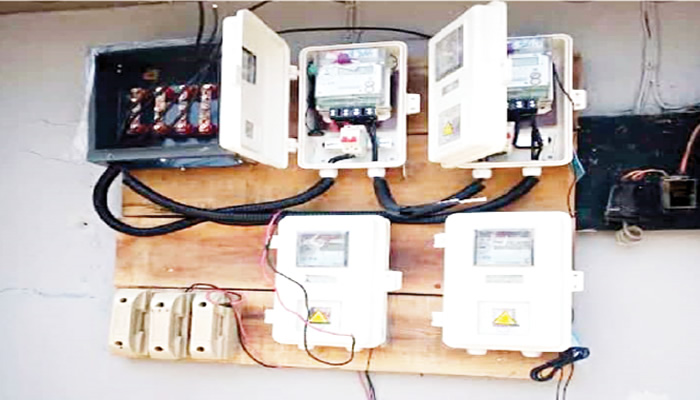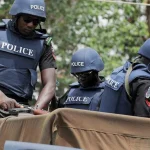A single-phase power meter used to cost about N88,000, but as of this year’s first quarter, it had risen to N130,000.
Prepaid meter charges are set to rise for the second time, with approval from the Nigerian Electricity Regulatory Commission.
According to information obtained by Sunday PUNCH, the cost of a single-phase meter varied between N130,000 and N139,000, while the cost of a three-phase meter was N219,000 to N229,000, contingent upon the seller.
At the same time, a few customers who are not yet metered have been complaining about their electricity distribution companies’ inflated incoming bills.
Customers with direct connections bemoaned receiving estimated monthly billings from DisCos, complaining that the charges were often out of proportion to the amount of energy they really consumed.
The price of a single-phase smart meter was N106,802.69. The price of a three-phase smart meter increased from N154,600 in May of this year to N210,751.61.
Some of the electrical distribution firms that spoke with news correspondent claimed that the meter asset provider, who is required to furnish the meter within 10 working days of payment, is the direct point of contact for customers and that DisCos no longer have authority over meter sales.
Fola Akinola, the CEO of Femadec Group, recently stated that the reason the meter application websites were closed in April was because the DisCos and vendors were regularising their prices to match the current state of the economy.
“In a situation where you fixed the price of meters when $1 was around N500, and now that $1 is over N1,300, you cannot sell the ones you have because you will not be able to replace them. People cannot bring in meters because of the exchange rate,” he stated.
Princewill Okorie, Executive Director of the Electricity Consumers Protection and Advocacy Centre, wondered why NERC would accept another meter price rise when consumers are already facing hardships due to the Band A tariff hike in a chat with a news correspondent from PUNCH on Saturday.
Okorie claimed that Discos have been extorting Nigerians by breaking the MAP policy, which stated that customers should receive energy credit as compensation for paid meters, with the help of NERC.
“The MAP scheme policy says that if a consumer pays for a meter, he should get a refund through energy credit. How many consumers have been paid back?
“Why will this sector be only about collecting money from the consumers without service delivery, transparency and accountability? This is because nobody punishes or monitors the Discos. It still boils down to the consumer aspect of the sector not being taken seriously.”
The consumer rights advocate revealed that NERC has given DisCos approval to set aside a specific percentage of each bill a customer pays for the Meter Acquisition Fund during the 2022 rate hike.
Under the Presidential Metering Initiative, which was approved by the federal government in June of this year, N21 billion will be used to give unmetered people free meters.
Customers are not required to pay for meters under this plan, according to a commission official who spoke to the correspondent on the condition of anonymity.
The NERC official responded, “Those people are supposed to be refunded by the DisCos through energy credit and the commission is following up on the compliance,” when asked if this would not amount to discrimination against those who have been paying for meters for all these years.
The correspondent was informed by a different source that the MAF meters are exclusive to Band A consumers.
“The Phase 1 MAF meters will be given to Band A customers for free. It will eventually go round to other customer classes”, said the source.
The Association of Nigerian Electricity Distributors’ Sunday Oduntan, Executive Director of Research and Advocacy, informed the reporter that the meter policy has changed and that DisCos are no longer in charge of meter sales.
Meanwhile, certain consumers of the Eko and Ibadan power distribution firms in the southwest region of Nigeria have expressed dissatisfaction with the quantity that these companies are providing them.
Christina Monyeh, a customer of EKEDC, claimed that ever since the firm charged her N394,286.03 on July 11, 2023, she has been receiving “crazy bills” from EKEDC.
She said, “The crazy billing started in July when we were billed N394,286.03, it increased to N650,285.04 in December 2023 and it went on like that. To our surprise, they brought a bill of N1,134,129.05 in January, N1,350,727.55 in February and N746,945,00 in July.
“We had prepaid meter which we usually load between N40,000 and N60,000 electricity units on it. But in June 2023, some officials of the EKEDC came to the house and said the meter was stagnant; I don’t know what that means. They placed us on direct since then.
“We applied for meter in January 2024, but the meter was not given to us. In May this year, the EKEDC claimed that the address we supplied was not correct. I suspect they didn’t want to give the meter to us because of the crazy billing”, she stated.
Ismail Kolapo, a client of the Ibadan Electricity Distribution firm in Osogbo, bemoaned the N700,000 electricity bill that the firm had sent to his residence.
He said, “IBEDC’s bill is choking and unpayable because I don’t know why they would give us N700,000 bill for when we didn’t have a cold room.
“Around February this year, we approached one of the marketers of the IBEDC for prepaid meter. We paid N80,000 for one face meter and an additional N10,000 as consultation fee. A week later, we were told IBEDC had closed the portal for meter procurement.”
However, Busolami Tunwase, the IBEDC’s Head of Media Relations, asserted that the business had no influence over the cost of the meter.
She stated that, “No customer is billed arbitrarily. There’s something we call capping policy for those who do not have a meter, it is an accountability mechanism put in place to ensure that customers are not billed arbitrarily beyond their cumulative usage. The policy is to ensure that no customer is cheated.”




